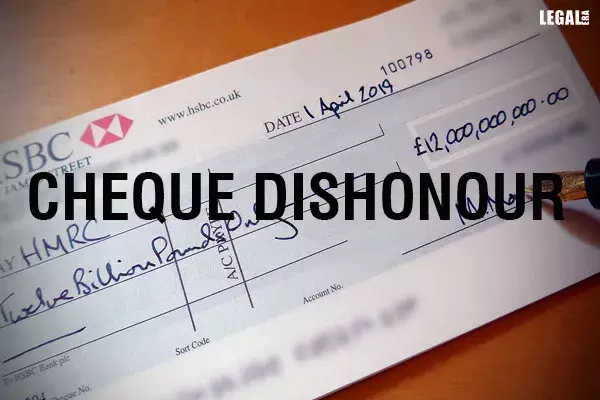Delhi High Court Affirms Section 138 of NI Act Remains Unaffected by Punjab Money Lenders Act
The Delhi High Court has overturned the orders of a trial court dismissing cheque dishonour complaints, ruling that a person;

Delhi High Court Affirms Section 138 of NI Act Remains Unaffected by Punjab Money Lenders Act
The Delhi High Court has overturned the orders of a trial court dismissing cheque dishonour complaints, ruling that a person cannot be barred from filing and prosecuting a complaint under Section 138 of the Negotiable Instruments Act, 1881 (NI Act), simply because they were conducting a money lending business without a valid license.
In this case, the petitioner, acting as the complainant, had lodged multiple criminal complaints against various individuals under Section 138 of the Negotiable Instruments Act. The trial court, mainly citing the petitioner's contravention of the Punjab Registration of Money Lenders Act, 1938, dismissed these complaints. This was due to the petitioner's engagement in money-lending activities without possessing a valid license.
The petitioner's counsel contended that the trial court's dismissal of the complaints in the pre-trial stage, without allowing the petitioner to present evidence, was unjustified.
Justice Sudhir Kumar Jain, presiding as the single judge on the bench, asserted that both statutory provisions served distinct purposes and operated within separate and autonomous legal realms. He emphasised that there existed no evident conflict between Section 3 of the Punjab Registration of Money Lenders Act, which precludes civil remedies for money lenders lacking a valid license or certificate for money lending activities, and Chapter XVII of the Negotiable Instruments Act, which delineates criminal remedies and penalties for cases involving dishonoured cheques as outlined in Section 138 of the Act.
The Bench observed that even if an individual extends a loan without possessing a valid money lending license or license, they are still eligible to initiate and pursue a complaint under Section 138 of the Negotiable Instruments Act (NI Act) concerning dishonoured cheques. In such cases, they are only required to fulfil the obligatory conditions specified in Section 138 of the NI Act.
The Court noted that the trial court, after taking cognisance under Section 138 of the Negotiable Instruments Act, 1881, conducted an abrupt examination of the petitioner under Section 165 of the Indian Evidence Act, 1872. During this examination, the petitioner disclosed that he had filed approximately 15-20 complaints against 12 individuals. He further mentioned that he had provided funds to respondent no. 2 for their chit fund activities and had given money to other respondents due to personal friendships or relationships.
However, the trial court deviated from the standard procedure in summon trials as outlined in Chapter XX of the Code of Criminal Procedure, 1973, by issuing a show-cause notice to the petitioner during the trial. The Bench emphasized that the trial court's assumption, lacking any legal or factual foundation, that the petitioner operated as a money lender and that the loans extended by him to the respondents met the criteria of a loan under the Punjab Registration of Money Lending Act, was unwarranted.
Furthermore, the Court firmly asserted that these orders were indicative of a complete absence of judicial discretion on the part of the trial court, along with a blatant disregard for the established procedural guidelines articulated in Chapter XX of the Code of Criminal Procedure.
It underscored that the trial court's dismissal of the petitioner's complaints under Section 138 of the Negotiable Instruments Act, solely relying on statements recorded under Section 165 of the Indian Evidence Act and the responses to the show-cause notice, was unwarranted and should not have transpired in such a manner.
The Bench additionally noted that a magistrate's court lacks the authority to acquit the accused upon their appearance in court in a summons trial case, which includes complaints under Section 138 of the Negotiable Instruments Act, once cognisance has already been taken and the issuance of the legal process has been ordered pursuant to section 204 of the Code of Criminal Procedure.
Regarding the question of the legitimacy of the revision petition, the Bench clarified that the trial court had not dismissed the complaints and acquitted the respondent following the conclusion of the trial, based on the evidence presented by the parties involved. Instead, it had arrived at a premature decision, grounded in incorrect legal assumptions and without adhering to established legal principles. This miscarriage of justice suffered by the petitioner justified the maintainability of the current revision petitions, rendering the filing of appeals unnecessary.
In light of the aforementioned observations, the present petitions were granted, and orders of the trial court were overturned.

